Betriebliche Dynamiken und Beschäftigungsergebnisse
Firmengründungen und -schließungen sind in einer Marktwirtschaft für die Reallokation von Ressourcen, strukturellen Wandel und damit für die wirtschaftliche Entwicklung von zentraler Bedeutung und spielen vor allem im Hinblick auf die wirtschaftliche Transformation Ostdeutschlands eine zentrale Rolle. Gleichzeitig können die mit dem Strukturwandel verbundenen Arbeitsplatzverluste dramatische Folgen für betroffene Arbeitnehmer haben, wie z.B. Arbeitslosigkeit, Einkommensverluste oder eine geringere Arbeitsplatzqualität. Diese Forschungsgruppe untersucht mithilfe mikroökonometrischer Methoden Gründungen, Wachstumsprozesse und das Scheitern von Unternehmen, die Anzahl und Qualität der von Neugründungen geschaffenen Arbeitsplätze und die Folgen von Firmenschließungen für betroffene Arbeitnehmer und Arbeitnehmerinnen, vor allem in Bezug auf Arbeitsmarktergebnisse wie Beschäftigung und Löhne.
Forschungscluster
Produktivität und InstitutionenIhr Kontakt

Mitglied - Abteilung Strukturwandel und Produktivität
PROJEKTE
01.2020 ‐ 06.2024
Europas populistische Parteien im Aufwind: die dunkle Seite von Globalisierung und technologischem Wandel?
VolkswagenStiftung
Die Globalisierung hat zwar allgemein den Wohlstand gesteigert, aber in vielen Regionen Europas auch zu Arbeitslosigkeit, Lohnungleichheit, Abwanderung und Überalterung geführt. Das Projekt untersucht, ob diese ökonomischen Lasten zu Wählerstimmen für populistische Parteien führen.
01.2019 ‐ 06.2022
MICROPROD („Raising EU Productivity: Lessons from Improved Micro Data“)
Europäische Kommission
Ziel von MICROPROD ist es, zu einem besseren Verständnis der Herausforderungen beizutragen, die die vierte industrielle Revolution in Europa mit sich bringt. Verliert das Produktivitätswachstum im Kontext von Globalisierung und Digitalisierung an Schwung, und wenn ja, warum?
This project has received funding from the European Union’s Horizon 2020 research and innovation programme under grant agreement No 764810.
07.2018 ‐ 12.2020
Firmenlohndifferentiale in unvollkommenen Arbeitsmärkten: Die Rolle von Marktmacht und industriellen Beziehungen in der Aufteilung der Beschäftigungsrenten zwischen Arbeitnehmern und Arbeitgebern
Deutsche Forschungsgemeinschaft (DFG)
Ziel dieses Projekts ist es, die Aufteilung der Beschäftigungsrenten auf unvollkommenen Arbeitsmärkten und den Einfluss von Arbeitsmarktinstitutionen wie Tarifbindung und betrieblicher Mitbestimmung auf Firmenlohndifferentiale zu untersuchen. Über die Grundlagenforschung hinaus hat das Projekt damit Potential, wichtige wirtschaftspolitische Debatten zur institutionellen Ausgestaltung des Lohnfindungsprozesses zu informieren.
02.2019 ‐ 09.2019
Auswertung des IAB-Betriebspanels 2018 und Erstellung eines Ergebnisberichts für West- und Ostdeutschland
04.2016 ‐ 03.2019
Lohn- und Beschäftigungseffekte von Insolvenzen
Deutsche Forschungsgemeinschaft (DFG)
Ziel des Projekts ist es, erstmals den Prozess und die Folgen des Scheiterns von Unternehmen ausführlich zu analysieren. Insbesondere ist es im Rahmen dieses Projekts erstmals möglich, die Folgen kleinbetrieblicher Insolvenzen zu erforschen, was vor allem deshalb relevant ist, weil Arbeitnehmer in Betrieben mit weniger als zehn Beschäftigten etwa viermal so häufig von Insolvenzen betroffen sind wie Arbeitnehmer in Großbetrieben.
01.2018 ‐ 12.2018
Auswertung des IAB-Betriebspanels 2017 und Erstellung eines Ergebnisberichts für West- und Ostdeutschland
01.2017 ‐ 09.2017
Auswertung des IAB-Betriebspanels 2016 und Erstellung eines Ergebnisberichts für West- und Ostdeutschland
Referierte Publikationen
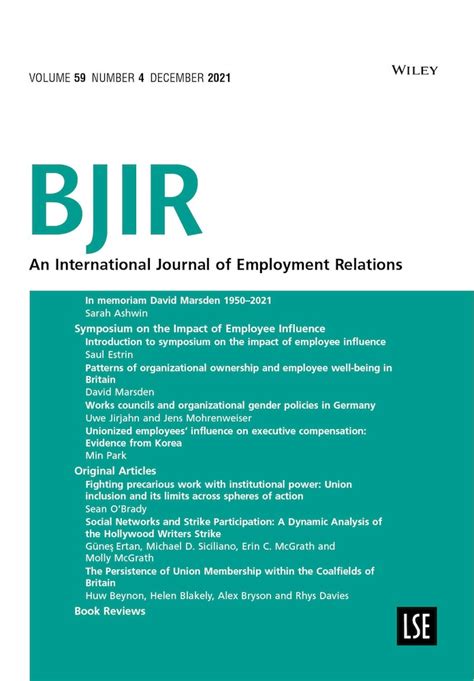
Uncovered Workers in Plants Covered by Collective Bargaining: Who Are They and How Do They Fare?
in: British Journal of Industrial Relations, Nr. 4, 2022
Abstract
Abstract In Germany, employers used to pay union members and non-members in a plant the same union wage in order to prevent workers from joining unions. Using recent administrative data, we investigate which workers in firms covered by collective bargaining agreements still individually benefit from these union agreements, which workers are not covered anymore and what this means for their wages. We show that about 9 per cent of workers in plants with collective agreements do not enjoy individual coverage (and thus the union wage) anymore. Econometric analyses with unconditional quantile regressions and firm-fixed-effects estimations demonstrate that not being individually covered by a collective agreement has serious wage implications for most workers. Low-wage non-union workers and those at low hierarchy levels particularly suffer since employers abstain from extending union wages to them in order to pay lower wages. This jeopardizes unions' goal of protecting all disadvantaged workers.
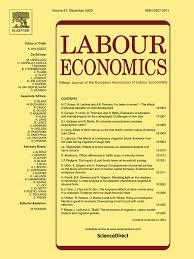
The Gender Reveal: The Effect of Sons on Young Fathers’ Criminal Behavior and Labor Market Activities
in: Labour Economics, October 2022
Abstract
Based on New Zealand’s administrative court charges data, we document child gender-specific differences in future criminal behavior of young fathers. The deterrent impact of having a son on the future likelihood of receiving convictions persists for as long as ten years post-childbirth. Utilizing population-wide monthly tax registers and Census data, we provide key insights into the role model hypothesis. We show that young fathers with a son have (i) a higher likelihood of being in employment, (ii) higher wages and salaries, (iii) lower benefit dependency, (iv) better qualification, and (v) a higher likelihood of being in a partnered relationship.
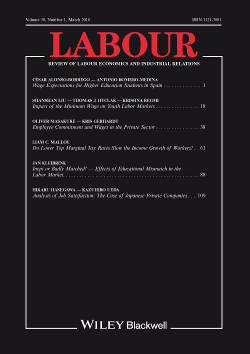
Non-base Compensation and the Gender Pay Gap
in: LABOUR: Review of Labour Economics and Industrial Relations, Nr. 3, 2022
Abstract
This paper investigates whether non-base compensation contributes to the gender pay gap (GPG). Using administrative data from Germany, we find in wage decompositions that lower bonus payments to women explain about 10 per cent of the gap at the mean and at different quantiles of the unconditional wage distribution whereas the lower prevalence of shift premia and overtime pay among women is unimportant. Among managers, the contribution of bonuses to the mean gap more than doubles and is steadily rising as one moves up the wage distribution. Our findings suggest that gender differences in bonuses are an important contributor to the GPG, particularly in top jobs.
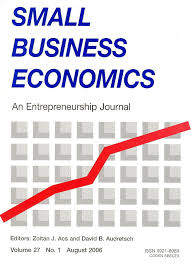
Does Working at a Start-up Pay Off?
in: Small Business Economics, Nr. 4, 2022
Abstract
Using representative linked employer-employee data for Germany, this paper analyzes short- and long-run differences in labor market performance of workers joining start-ups instead of incumbent firms. Applying entropy balancing and following individuals over ten years, we find huge and long-lasting drawbacks from entering a start-up in terms of wages, yearly income, and (un)employment. These disadvantages hold for all groups of workers and types of start-ups analyzed. Although our analysis of different subsequent career paths highlights important heterogeneities, it does not reveal any strategy through which workers joining start-ups can catch up with the income of similar workers entering incumbent firms.
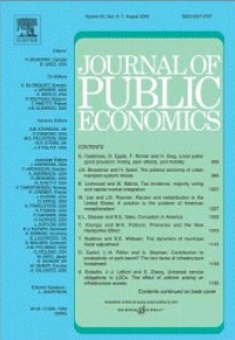
The Place-based Effects of Police Stations on Crime: Evidence from Station Closures
in: Journal of Public Economics, March 2022
Abstract
Many countries consolidate their police forces by closing down local police stations. Police stations represent an important and visible aspect of the organization of police forces. We provide novel evidence on the effect of centralizing police offices through the closure of local police stations on crime outcomes. Combining matching with a difference-in-differences specification, we find an increase in reported car theft and burglary in residential properties. Our results are consistent with a negative shift in perceived detection risks and are driven by heterogeneous station characteristics. We can rule out alternative explanations such as incapacitation, crime displacement, and changes in police employment or strategies at the regional level. We argue that criminals are less deterred due to a lower visibility of the local police.
Arbeitspapiere
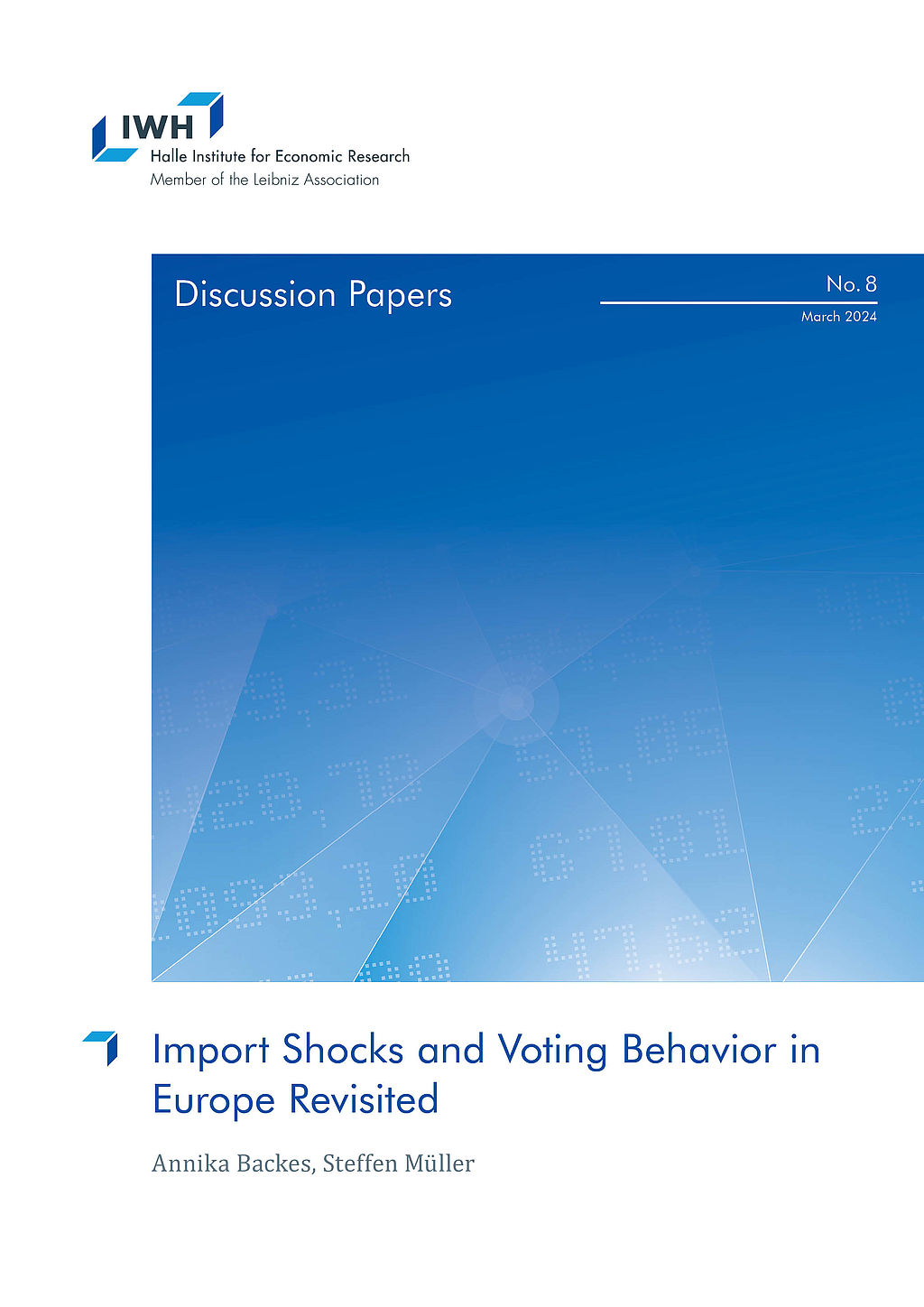
Import Shocks and Voting Behavior in Europe Revisited
in: IWH Discussion Papers, Nr. 8, 2024
Abstract
We provide first evidence for the long-run causal impact that Chinese imports to European regions had on voting outcomes and revisit earlier estimates of the short-run impact for a methodological reason. The fringes of the political spectrum gained ground many years after the China shock plateaued and, unlike an earlier study by Colantone and Stanig (2018b), we do not find any robust evidence for a short-run effect on far-right votes. Instead, far-left and populist parties gained in the short run. We identify persistent long-run effects of import shocks on voting. These effects are biased towards populism and, to a lesser extent, to the far-right.
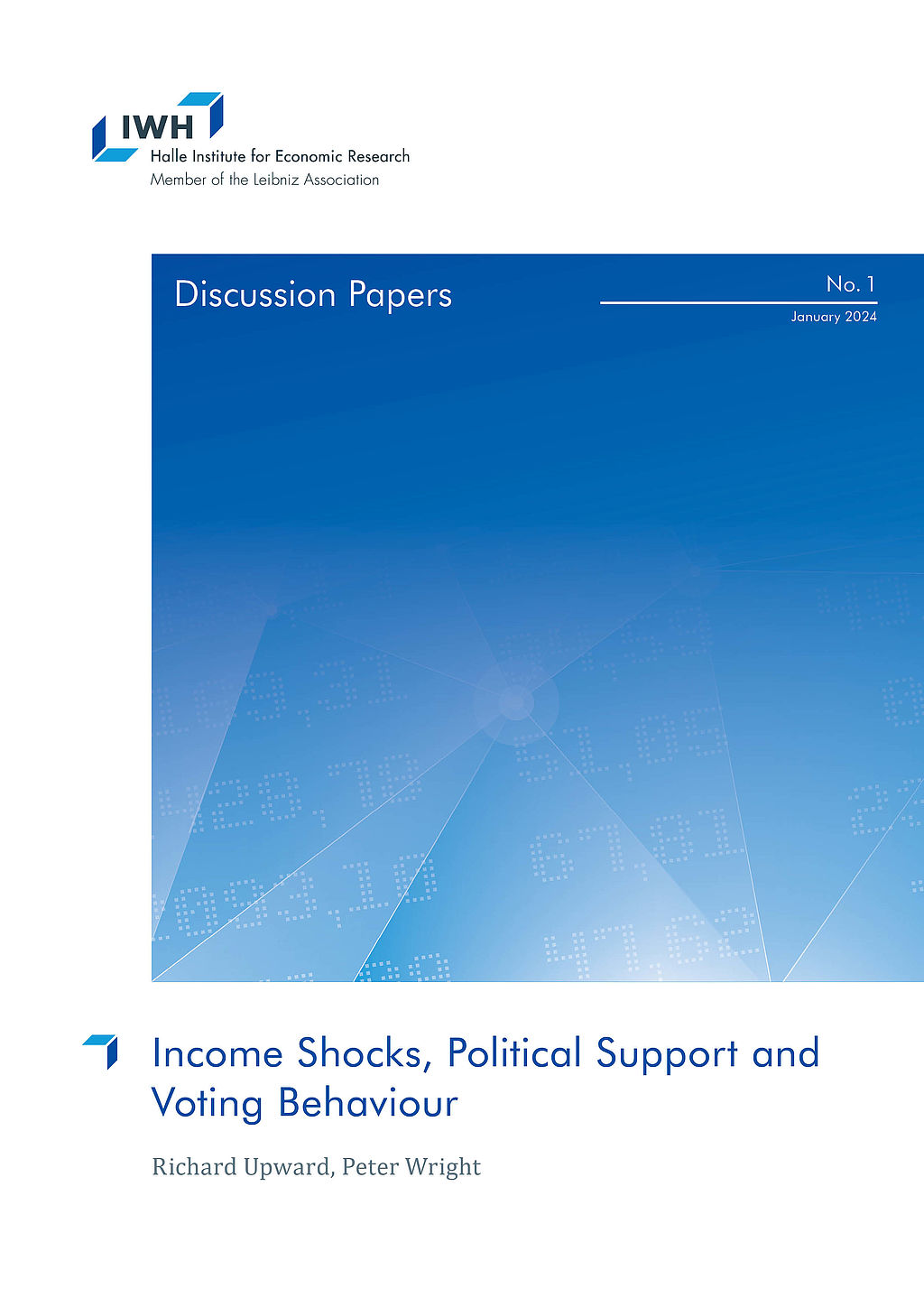
Income Shocks, Political Support and Voting Behaviour
in: IWH Discussion Papers, Nr. 1, 2024
Abstract
We provide new evidence on the effects of economic shocks on political support, voting behaviour and political opinions over the last 25 years. We exploit a sudden, large and long-lasting shock in the form of job loss and trace out its impact on individual political outcomes for up to 10 years after the event. The availability of detailed information on households before and after the job loss event allows us to reweight a comparison group to closely mimic the job losers in terms of their observable characteristics, pre-existing political support and voting behaviour. We find consistent, long-lasting but quantitatively small effects on support and votes for the incumbent party, and short-lived effects on political engagement. We find limited impact on the support for fringe or populist parties. In the context of Brexit, opposition to the EU was much higher amongst those who lost their jobs, but this was largely due to pre-existing differences which were not exacerbated by the job loss event itself.
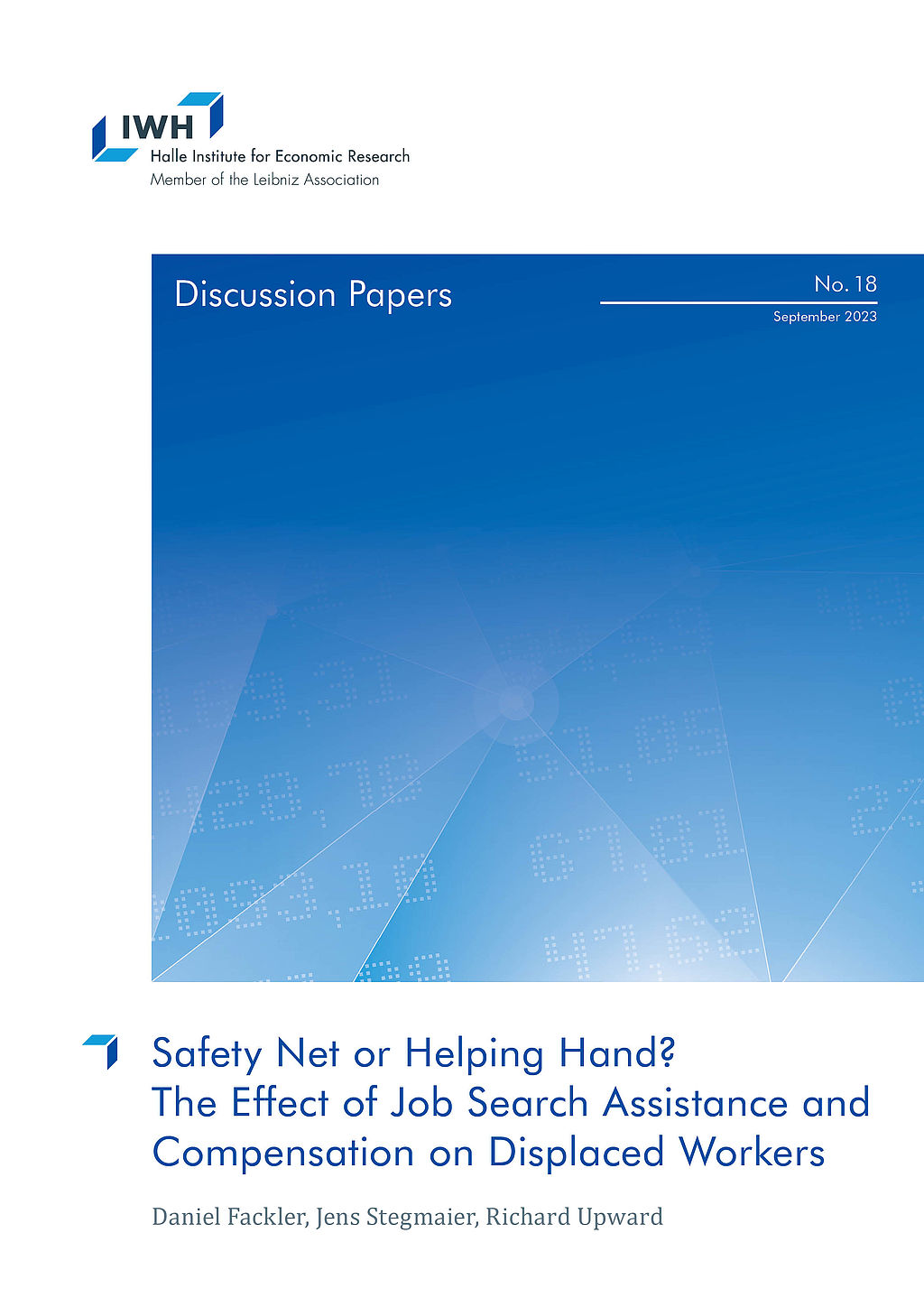
Safety Net or Helping Hand? The Effect of Job Search Assistance and Compensation on Displaced Workers
in: IWH Discussion Papers, Nr. 18, 2023
Abstract
We provide the first systematic evidence on the effectiveness of a contested policy in Germany to help displaced workers. So-called “transfer companies” (<i>Transfergesellschaften</i>) employ displaced workers for a fixed period, during which time workers are provided with job-search assistance and are paid a wage which is a substantial fraction of their pre-displacement wage. Using rich and accurate data on workers’ employment patterns before and after displacement, we compare the earnings and employment outcomes of displaced workers who entered transfer companies with those that did not. Workers can choose whether or not to accept a position in a transfer company, and therefore we use the availability of a transfer company at the establishment level as an IV in a model of one-sided compliance. Using an event study, we find that workers who enter a transfer company have significantly worse post-displacement outcomes, but we show that this is likely to be the result of negative selection: workers who lack good outside opportunities are more likely to choose to enter the transfer company. In contrast, ITT and IV estimates indicate that the use of a transfer company has a positive and significant effect on employment rates five years after job loss, but no significant effect on earnings. In addition, the transfer company provides significant additional compensation to displaced workers in the first 12 months after job loss.
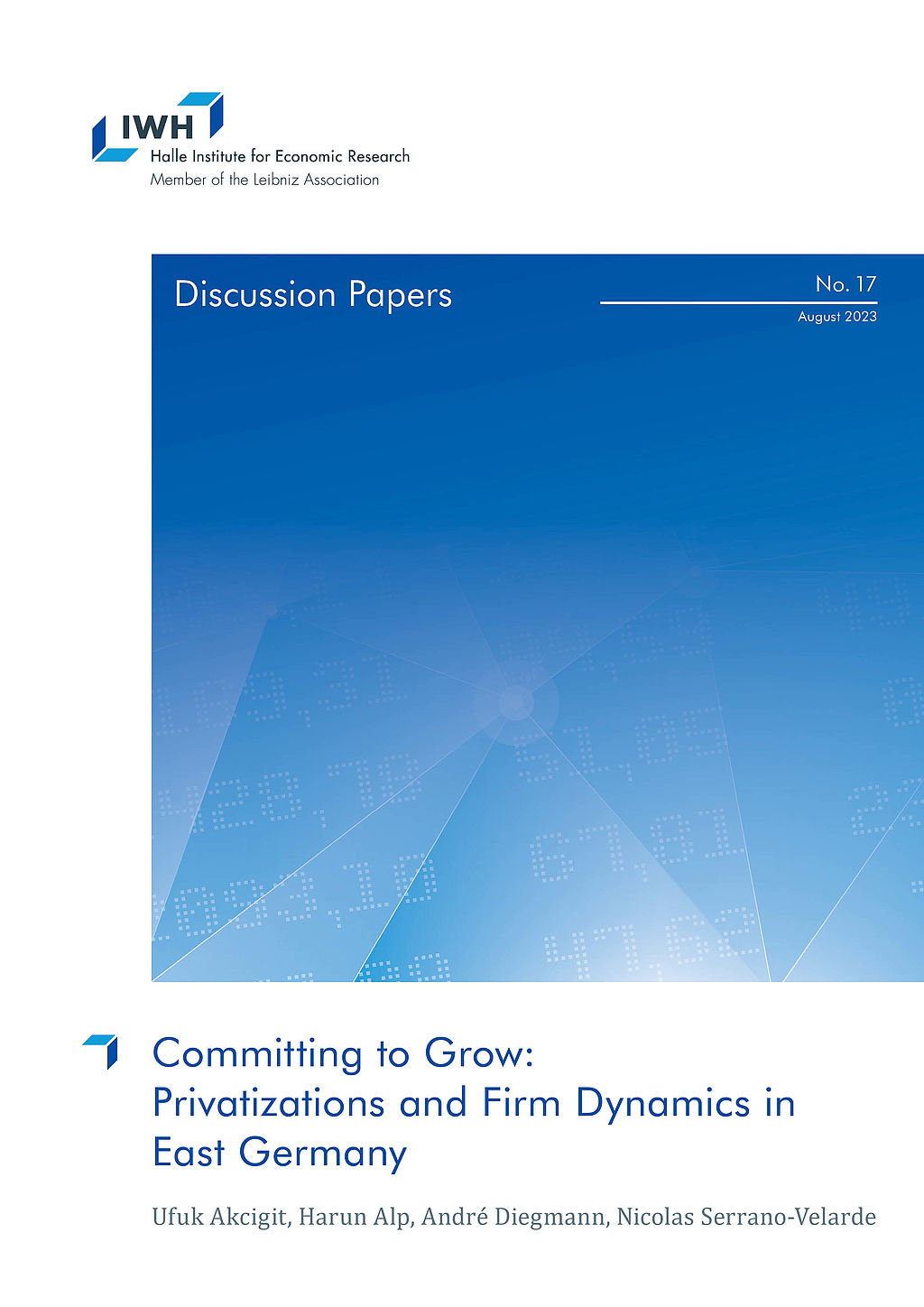
Committing to Grow: Privatizations and Firm Dynamics in East Germany
in: IWH Discussion Papers, Nr. 17, 2023
Abstract
This paper investigates a unique policy designed to maintain employment during the privatization of East German firms after the fall of the Iron Curtain. The policy required new owners of the firms to commit to employment targets, with penalties for non-compliance. Using a dynamic model, we highlight three channels through which employment targets impact firms: distorted employment decisions, increased productivity, and higher exit rates. Our empirical analysis, using a novel dataset and instrumental variable approach, confirms these findings. We estimate a 22% points higher annual employment growth rate, a 14% points higher annual productivity growth, and a 3.6% points higher probability of exit for firms with binding employment targets. Our calibrated model further demonstrates that without these targets, aggregate employment would have been 15% lower after 10 years. Additionally, an alternative policy of productivity investment subsidies proved costly and less effective in the short term.
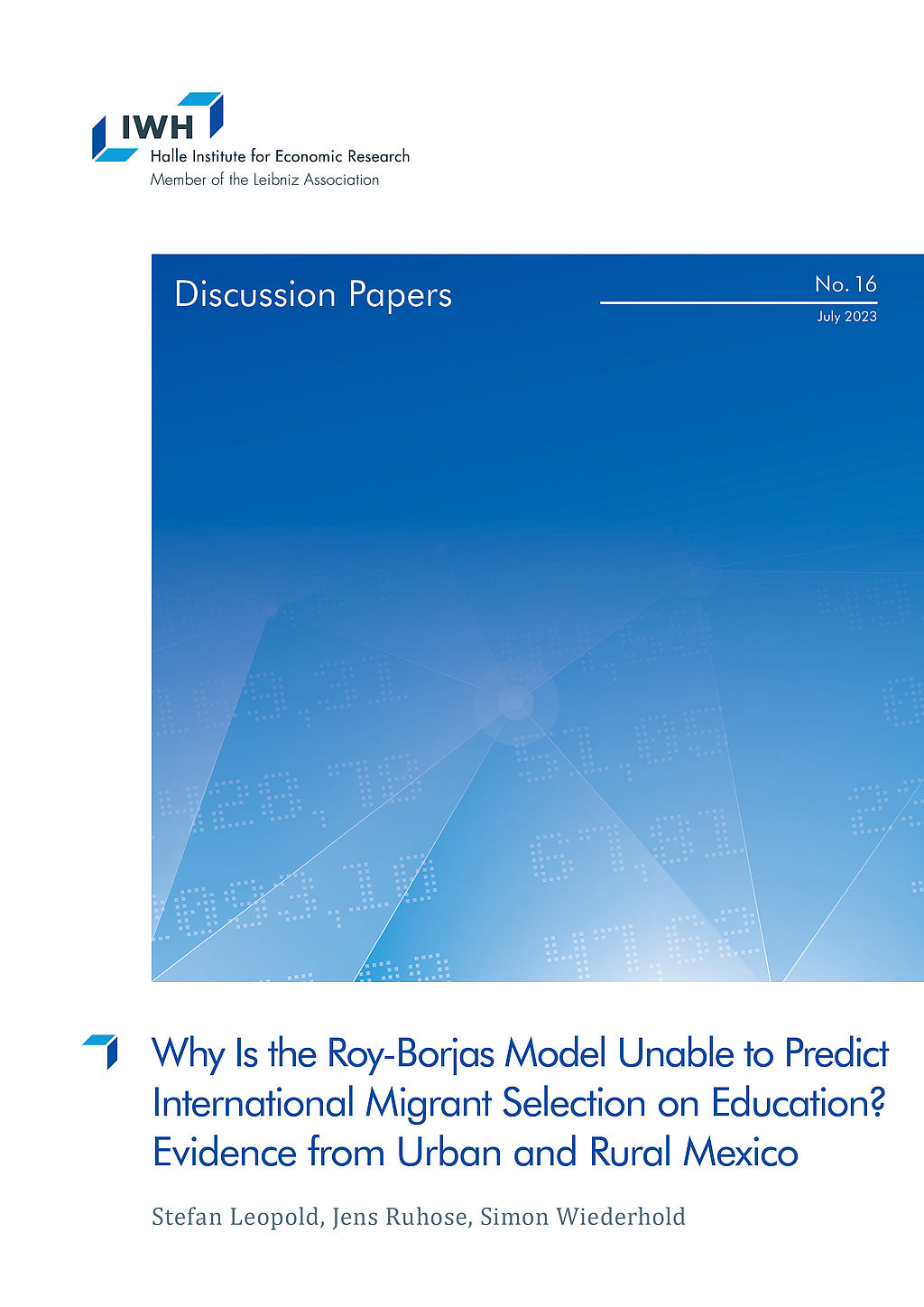
Why Is the Roy-Borjas Model Unable to Predict International Migrant Selection on Education? Evidence from Urban and Rural Mexico
in: IWH Discussion Papers, Nr. 16, 2023
Abstract
The Roy-Borjas model predicts that international migrants are less educated than nonmigrants because the returns to education are generally higher in developing (migrant-sending) than in developed (migrant-receiving) countries. However, empirical evidence often shows the opposite. Using the case of Mexico-U.S. migration, we show that this inconsistency between predictions and empirical evidence can be resolved when the human capital of migrants is assessed using a two-dimensional measure of occupational skills rather than by educational attainment. Thus, focusing on a single skill dimension when investigating migrant selection can lead to misleading conclusions about the underlying economic incentives and behavioral models of migration.


















